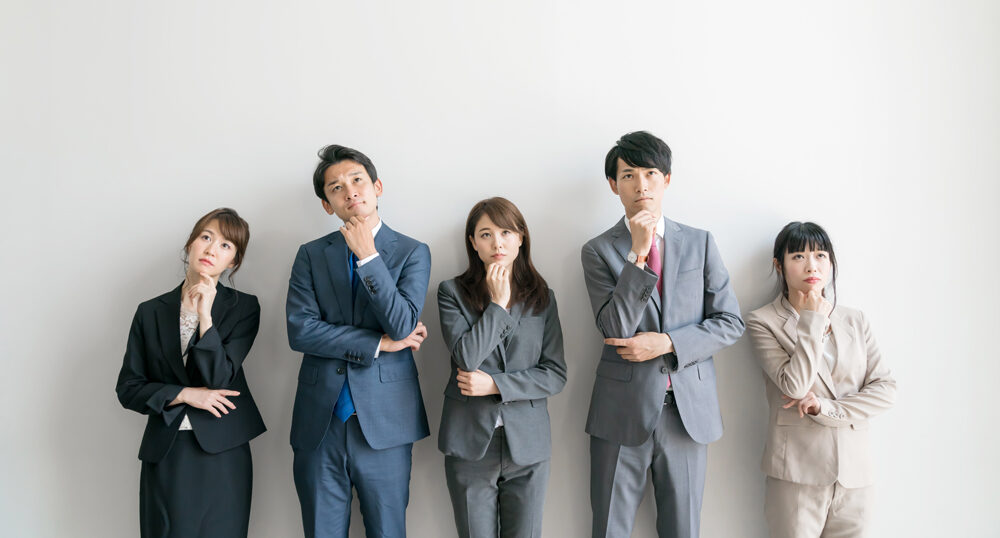When setting up an overseas subsidiary to expand overseas, the problem is the employees who work there. In many cases, staff are dispatched from the headquarters in Japan as the manager or manager of the operation. In that case, what will happen to the employment insurance?
目次
What is Employment Insurance?
Employment insurance is an insurance to stabilize the employment of workers and prepare for unemployment. As a general rule, all workers are covered by the employment insurance, and those who work 20 hours or more per week and are expected to be employed for at least 31 days.
When a worker who is insured by employment insurance leaves the company, a certain amount and period of unemployment benefits are paid according to the period and age during which the worker was insured. The Employment Insurance System also provides benefits related to employment stability.
If a company hires an employee, it has to take out employment insurance. However, if you are transferred from an overseas company and have a system like employment insurance overseas, you will be exempted from it. Then, how will it be treated when a Japanese company transfers to an overseas corporation?
Patterns and responses when working overseas
When you start working overseas, there are three main patterns. The first is when you go on a business trip for inspection. Furthermore, if you work for an overseas corporation as a representative for a certain period of time, or you may be transferred to an overseas corporation.
In this case, the key to considering employment insurance is the employment relationship between the employer and the employee. First of all, if you go on a business trip for inspection, your relationship with your employer will not change. Therefore, the employment insurance will continue without change.
Next, if you work at a branch office as a representative, the employment insurance will not change if the employment relationship remains the same. Even if you are employed by an overseas employer for a certain period of time, it is because of the business order of the Japanese employer and there is no change in the employment relationship. In other words, if you are on loan, you will be treated as an insured person of employment insurance even if you work for a foreign corporation.
Employment insurance does not apply when you terminate your employment relationship with a domestic employer and are hired by an overseas company. In this case, since the employment relationship is once terminated, you will lose the eligibility for employment insurance.
Handling of Insurance Premiums for Employees Transferred Overseas – When Domestic Salaries Are Required –

The insurance premium of employment insurance is calculated by multiplying the total amount of wages of workers by the insurance premium rate. As of 2019, unemployment insurance premiums stood at 0.9%, excluding some industries. Workers pay 0.3% and employers pay 0.6%.
Reference: Employment Insurance Premium Rate for FY 2019 by the Ministry of Health, Labour and Welfare
The above is a basic calculation formula for insurance premiums. The amount of unemployment insurance is also calculated based on wages. When you work overseas, you need to be careful because the treatment changes depending on whether or not wages are generated in Japan. First, if a salary is paid in Japan, the amount of salary that is normally paid when working in Japan is interpreted as a wage under the Employment Insurance Law to calculate the insurance premium.
For example, overseas allowances and overseas allowances do not occur if you work in Japan. Therefore, it is not included in the wage for calculating insurance premiums. Wages at this time are also used as the basis for calculating unemployment benefits.
Even if you are assigned overseas while you are enrolled, you may be paid all of your wages at the place of assignment and not be paid in Japan. Then, as you are registered, you will continue to be eligible for employment insurance, but you will not be paid any wages, so you need to be careful when you receive unemployment benefits. In other words, because there is no salary to calculate unemployment benefits, it becomes impossible to calculate the amount of unemployment benefits per day.
For example, if you leave your company for personal reasons within one year of returning to your home country after you have been assigned for more than one year, you may not be able to receive unemployment benefits due to an insufficient period of time as an insured period. In order to receive unemployment insurance benefits, if you quit your job for personal reasons, you must have been paid for at least 12 months in the 2 years before you left your job. Then, if you have been assigned overseas for more than a year, you cannot receive unemployment benefits unless you have been insured for more than a year after you return to your country.
However, if you are assigned overseas and cannot receive wages for more than 30 days, you can extend the period covered by unemployment insurance to four years. In exceptional cases where it is recognized that wages during overseas work are extremely low, the amount of unemployment benefits is calculated based on the wages before overseas work. If you quit your job soon after you return to your home country, you should take advantage of this extension.
Summary
When expanding overseas, it is necessary to select personnel who will be transferred overseas and support their daily lives. Problems specific to overseas assignment are visa acquisition and social insurance. You will also need to follow up with your family.
Not only employment insurance, but also social insurance differs depending on the type of assignment and the country of assignment. This is a basic response. Each country and pattern requires individual judgment and action.



